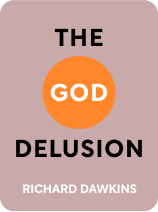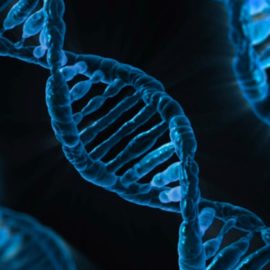

This article is an excerpt from the Shortform book guide to "The God Delusion" by Richard Dawkins. Shortform has the world's best summaries and analyses of books you should be reading.
Like this article? Sign up for a free trial here .
What is irreducible complexity? Why is irreducible complexity part of the argument for creationism?
Irreducible complexity is the idea that things in the universe cannot have evolved because they’re too complex. This relies on the idea that things can only exist in their final form.
Read more about irreducible complexity.
What Is Irreducible Complexity?
Irreducible complexity is one argument of theists. It claims that humans are too perfect in their forms, and could not have existed by chance. Here’s why that doesn’t work.
A Cumulative Process
Theists often mischaracterize natural selection as implausible because they misunderstand it (or willfully choose to not understand it). They caricature natural selection as claiming that evolution was a straightforward process that made the current state of the world inevitable. In many ways, their picture of natural selection treats the evolutionary process as a direct substitute for God.
But of course, this is not how natural selection works. Natural selection does not posit that evolution proceeded quickly on a linear course to arrive at exactly the state we observe today, nor does it claim that every facet of the natural world we see was inevitable. Natural selection is a cumulative process full of twists and turns, dead ends, and failed species along the way.
Slight changes in genetic mutations or in the natural environment at some point along the way would have drastically altered the process of evolution. We have abundant evidence in the fossil record of how and when today’s species evolved into the forms by which we know them today, including early versions of animals that died out along the evolutionary journey.
It is true that the totality of the world as we observe it today is a great improbability. But that is only because the natural world is the product of countless individual steps along the evolutionary process, each one of which was only slightly improbable. Creationists misleadingly try to focus attention on the improbability of the end product, rather than the much greater probability of each iterative step along the way.
They point to gaps in the evolutionary record as “proof” that the whole theory of natural selection ought to be scrapped. For example, they might point out that a fossil hasn’t yet been discovered that can be linked to human ancestors for a particular period of evolutionary history. But this is simply cherry-picking the evidence to support a predetermined conclusion. The evidence in favor of evolution by natural selection is overwhelming, and specific gaps in the state of our knowledge do not disprove the fundamental soundness of the theory. And even if they did, it is a complete non-sequitur to then conclude that the only alternative is an intelligent God.
The Falsity of Irreducible Complexity
Creationists also put a great deal of energy into looking for evidence of irreducible complexity in the evolutionary record. Something of irreducible complexity would be an organ or feature that could not have come about by natural selection, because it could not exist in anything other than its “finished” form. Anything less than the final, complex form wouldn’t function correctly.
Because natural selection is a gradual process that involves many iterative changes over time, it could not produce something of irreducible complexity. The discovery of such an organ would indeed be a serious blow to the theory of natural selection. Thankfully for the theory, however, nothing has been found that would meet the criteria for being irreducibly complex.
Even something as seemingly complex as the human eye is made up of constituent parts that evolved over time into their present form. We know this because we see organisms living today that have organs that contain constituent elements of the human eye—but nevertheless fall short of being a full eye. In fact, the flatworm has something very close to half a human eye. It can detect light, but it cannot see an image. Certain mollusks, meanwhile, have a “pinhole” eye that can detect images, albeit blurry and distorted ones, far inferior to those detected by the human eye.
While these are not the equal of the human eye, they are vastly better than no eye at all—and they show that even an eye can exist in simplified or partial form, just as natural selection predicts that it would.

———End of Preview———
Like what you just read? Read the rest of the world's best book summary and analysis of Richard Dawkins's "The God Delusion" at Shortform .
Here's what you'll find in our full The God Delusion summary :
- Why Dawkins thinks religion has exerted a harmful influence on human society
- How Dawkins concludes that the existence of God is unlikely
- The 3 arguments that challenge the existence of God






